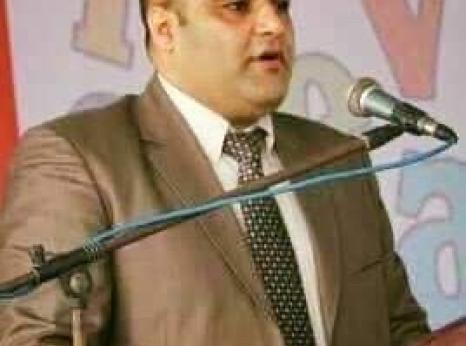Israel and Occupied Palestinian Territories: Free Gaza Aid Worker Sentenced To 12 Years

Mohammed al-Halabi worked for the charity, World Vision since 2005, and in 2014 was promoted to manage the charity’s operations in the Gaza Strip. He is married and has five children who live in Gaza City.
Throughout the court proceedings against him, which were all conducted in Hebrew, a language he does not speak, he was assigned a Shin Bet-accredited court interpreter who regularly mistranslated or omitted substantial parts of his testimonies and of the proceedings. His arbitrary detention is aimed at intimidating other human rights defenders and shrinking the space of aid organizations working to mitigate the impact of Israel’s illegal blockade on the Gaza Strip. He is still imprisoned because of his freely expressed desire to maintain his innocence in a demonstration of humanitarian values and personal integrity, and in protest against a justice system that is rigged against Palestinians.
Because Mohammed al-Halabi refused to enter a plea bargain – a principled stance under which he would rather spend 12 years in prison over admitting to acts he did not commit – the administration of justice within Israel’s apartheid system would not conduct judicial proceedings in accordance with international fair trial standards.
The Israeli Security Agency (known as Shabak) arrested him on 15 June 2016 at the Erez crossing between Israel and occupied Gaza. He was transferred to a detention centre at Ashkelon, Israel, where he was interrogated for 52 days before being moved to Ramon prison in the Negev/Naqab desert. Mohammed was denied access to a lawyer and held incommunicado for the first 20 days of detention, facing intensive interrogation. According to his lawyer and media reports, he was severely beaten for 96 hours, deprived of sleep for five days, handcuffed to a chair and forced to remain in painful stress positions. At no point during the interrogation, which lasted for 52 days, or the court proceedings, did Mohammed confess to the charges brought against him despite the torture and other ill-treatment to which he was subjected. Mohammed said that a statement to which he admitted to stealing 7.4 million USD a year was obtained by a prisoner informant who, according to Mohammed, threatened to “kill” him if he didn’t confess. Mohammed said that the informant also threatened to accuse him of collaborating with Israeli authorities upon release, a label that would put both him and his family, based in Gaza, at imminent and grave risk. The Israeli authorities’ widely-documented tactic of using jailhouse informants to induce confession under duress has come under criticism, including from leading Israeli criminal justice experts and even questioned by Israeli judges. The Public Committee Against Torture in Israel, an Israeli human rights organization, submitted Mohammed’s torture complaint to the Ministry of Justice’s Inspector for Complaints Against Israel Security Agency Interrogators on 22 January 2018, but there has been no response. Mohammed al-Halabi was not charged with a crime until 4 August 2016, more than seven weeks after his arrest.
An investigation by World Vision, including an externally-commissioned audit, and an investigation by the Australian Department of Foreign Affairs and Trade, a donor to World Vision’s programmes in the OPT, found no evidence of criminal wrongdoing by Mohammed or of his alleged membership in Hamas. World Vision has maintained Mohammed’s innocence on the charges of diverting funds to Hamas. His whole conviction is based on a “confession” he was forced to make under death threats to a cellmate who is alleged to be an informant in prison.
Under international humanitarian law, detainees from occupied territories must be detained in the occupied territory and not deported to the territory of the occupying power. They must also be allowed to receive visitors, especially near relatives, at regular intervals and as frequently as possible. Gaza prisoners continue to be most affected by Israeli restrictions as the Israeli military grants permits to families from the Gaza Strip only once every two months (with the exception of prisoners affiliated with Hamas, who have been barred from receiving family visits since 2017, a ban which was upheld by the Israeli Supreme Court in 2019). Restrictions or outright bans on family visits affect around 194 prisoners from the Gaza Strip currently detained in Israel (as of September 2022). Between March 2020 and March 2022, Israeli authorities suspended prison visits for Gaza families following the imposition of Covid-related restrictions. “I’m scared of forgetting my dad’s face,” Rital, Mohammed’s daughter who was just three years old when he was arrested in 2016, told her grandfather Khalil.
Israel’s widespread and systematic use of arbitrary detentions and torture against Palestinians, in flagrant violation of several prohibitions under international law, forms part of the state’s policy of domination and control over the Palestinian population. These violations may amount to the crimes against humanity of “imprisonment or other severe deprivation of physical liberty” and “torture”, which are prohibited under the Rome Statute and the Apartheid Convention.